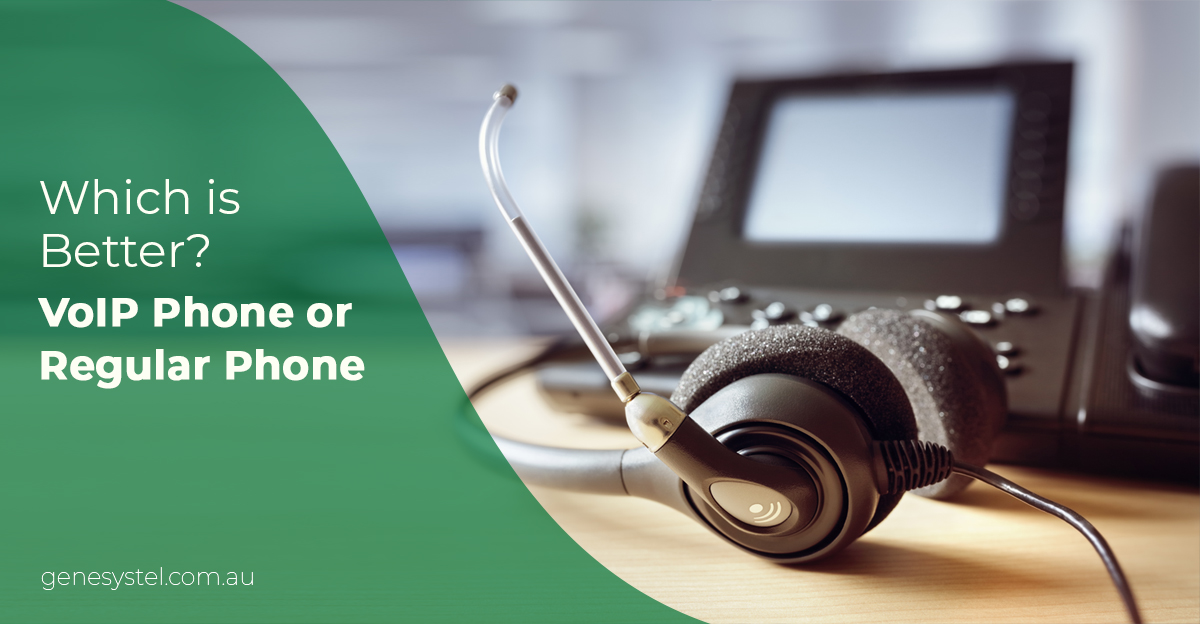As a technology, Voice over Internet Protocol (VoIP) has been there for quite some time and telecom services across the globe have reaped the benefits of such tech. VoIP’s biggest impact can be seen on call rates that have drastically reduced around the globe and individuals and corporations are enjoying these benefits. Such benefits have enabled both service providers and businesses to go for VoIP. However, companies that are still not sure about whether they should go for VoIP phone service or regular phone service should perform a comparative analysis of which one is better– VoIP phone or regular phone.
Here’s a clear distinction between the value addition of regular phone service and a VoIP solution, but one should understand how both the services work.
How does a Regular Phone system work?
Traditional voice calls travel over physical phone networks that run on copper lines on the Public Switched Telephone Network (PSTN), which utilises circuit switching technology to put them to work. Whenever a call is made through a landline, circuits open from the caller’s side to the other person. The entire circuit must remain open for the whole duration of the call. And keeping the circuits open is precisely the reason for long-distance calls being expensive. The greater the distance a call travels, the more circuits must be kept free and no other call can travel the same route. However, a conventional phone network doesn’t require any power or the internet. And this is an invaluable benefit during a disaster or emergency.

How does a VoIP Phone System Work?
On the other hand, VoIP phone service routes voice calls through data networks or internal enterprise Local Area Networks (LAN). VoIP uses packet switching technology to get the job done. VoIP converts voice into data packets and these packets are sent to their destination. The packets may take different routes to get there and once received on the other end, the receiving system assembles them in the right order and converts them into sound. A VoIP phone system, also called cloud-based phone system relies on the internet for its functionality and therefore, constant power and a high-speed Internet connection is needed.
Major Differences Between Regular and VoIP Phone Systems
To better understand the difference between the quality and benefits of two, one should focus on the merits of two and decide for themselves. Here’s a clear distinction between regular and VoIP business phone solutions.
Merits of VoIP Phone Systems
- VoIP phones, when integrated into cloud telephony, offer many features such as caller ID, speed dialling, call forwarding, call conferencing, call parking, auto-attendant etc.
- VoIP calls are digitally encrypted and way more secure in comparison with regular phone calls
- Extremely low call costs as VoIP uses the internet as a standard medium for facilitating calls
- Extremely beneficial for remote working
- Easy and quick setup as the service provider takes care of the installation and overall quality of the service
- VoIP can be used as a tool to expand a business’s presence over a large geographical area as it works perfectly fine regardless of users’ location
- VoIP supports softphone feature where a virtual number can be allotted to employees and they can use it from any phone
- VoIP phone solutions are quite flexible and scalable and regardless of the size of a business, they can scale it up and/or down as per their needs
Merits of Regular Phone Systems
- The connectivity in long–distance calls with regular phone systems is sure-shot as it uses physical phone lines for making and managing calls and it doesn’t require internet for making calls as well.
As you can see, modern hosted VoIP solutions have come a long way in terms of providing better call quality, connectivity and above all a range of features that are essentially required for smooth functioning of a business. VoIP represents a new architecture for making and managing phone calls. This new tech has combined the two services that were once independent of each other. Similarly, businesses can also combine features and operations such as voice, email, faxing and more in integrated technology to enable greater team collaboration. In addition, VoIP is also ideal for remote working settings where employees are spread across a wide geographical area.
When talking about small business phone systems in Australia, GenesysTel is one of the leading business communication services providers in Australia. The company offers tailor-made solutions for unique business requirements along with a fair possibility of scaling those up and/or down as per the dynamic business needs. GenesysTel is also one of the few fibrenet providers with more than 15 years of experience in facilitating smart business communications.

